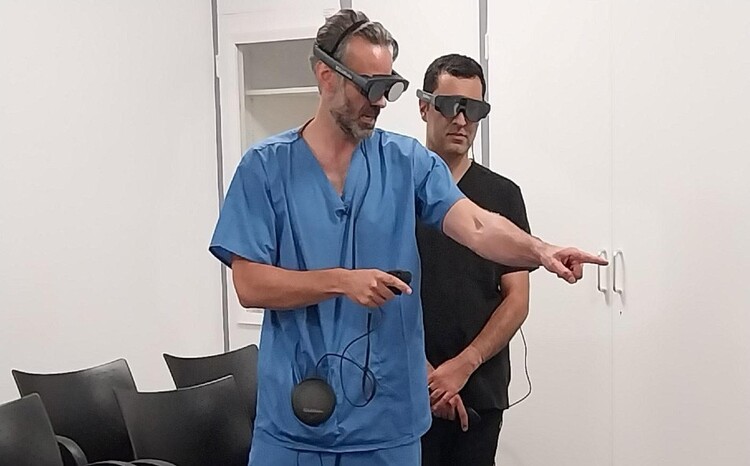The neurosurgery team at Imperial College Healthcare NHS Trust is revolutionizing patient care and training through the introduction of mixed reality technology.
Using the simXAR tool developed by XARlabs, clinicians and patients can now interact with high-resolution 3D hologram-like images of patient scans, in addition to traditional imaging techniques.
This cutting-edge technology is being utilized in patient consultations, surgical preparations, and immersive clinical training, providing detailed and accurate visualization of surgical procedures.
Mr Ali Haddad, chief executive of Xarlab and senior neurosurgery registrar, highlights the quantifiable benefits this technology brings to both patients and clinicians.
With plans to explore real-time surgical applications and potential clinical trials in the future, mixed reality is enhancing the understanding and preparedness of surgeons, trainees, and patients alike.
The trust’s neurosurgery team is leveraging this technology to convert CT and MRI scans into 3D augmented reality models, enhancing the explanation of treatments to patients and improving team readiness.
Through the use of Magic Leap 2 headsets, both surgeons and trainees can interact with 3D models, enabling a deeper understanding of patient anatomy in a user-friendly and immersive manner.
Consultant skull base and vascular neurosurgeon Mr Arthur Dalton expresses the team’s enthusiasm for this technology, acknowledging its superior level of detail and interactivity that surpasses traditional methods.
As they continue to evaluate the technology’s potential benefits in medical training, patient experience, and surgical guidance, the future of mixed reality in neurosurgery at Imperial looks promising.






